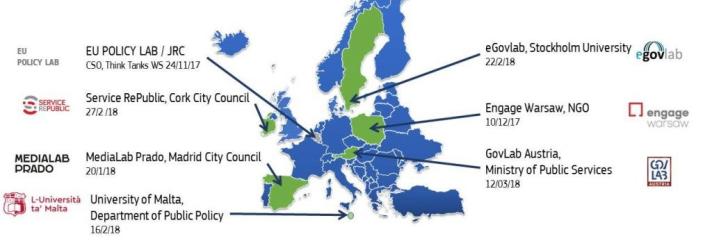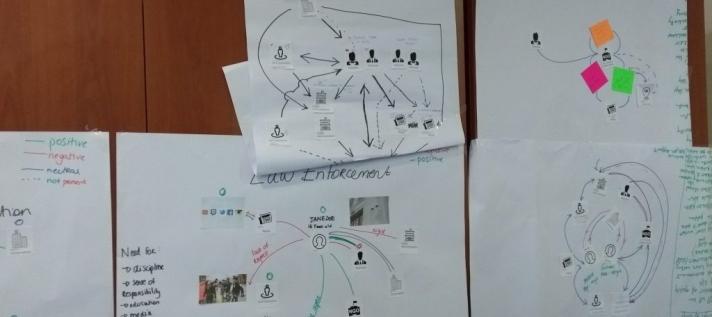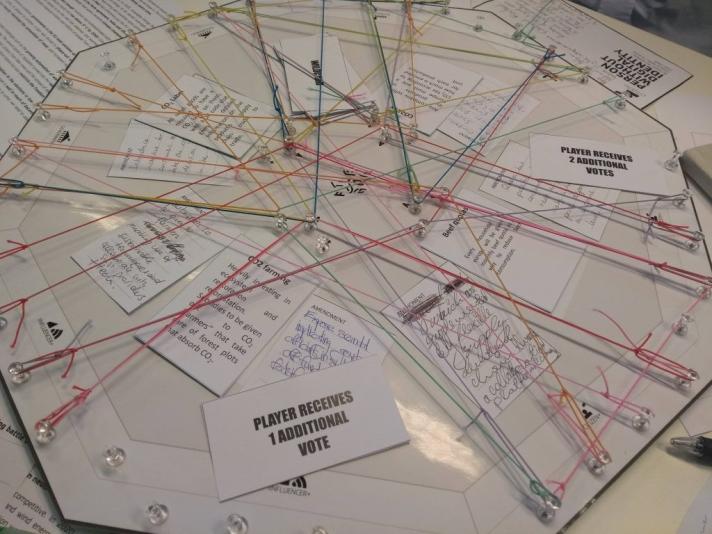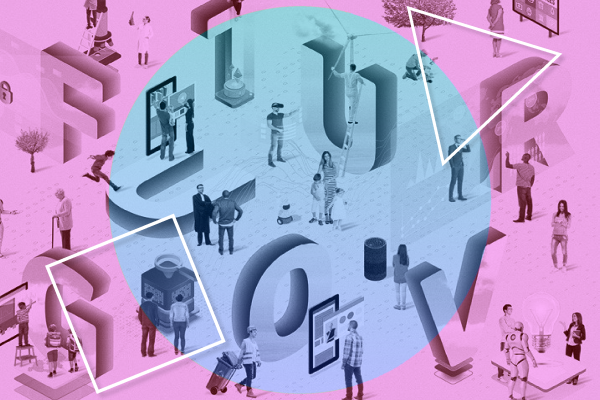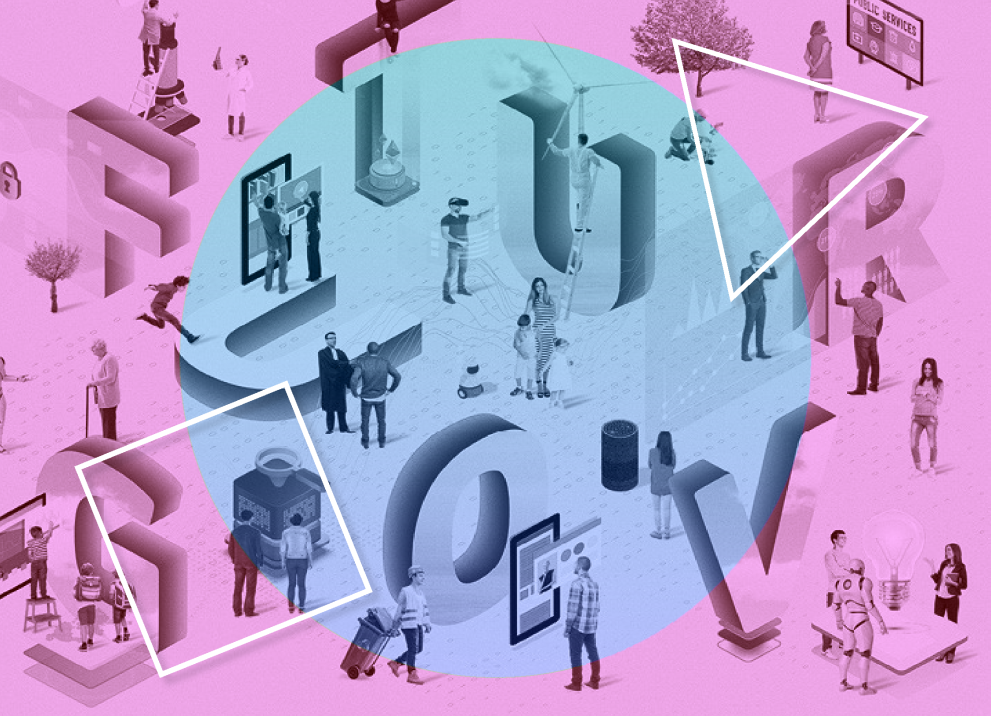
The project at a glance
Contemporary society is rapidly changing. Social and technological changes are deeply affecting European citizens and re-shaping their interactions with businesses and governments, and with one another. These developments are influencing power relations in society and might lead to new forms of democracy and governance. The role and form of government might change as well. Identifying requirements for future governments allows us to rethink their structures and processes and explore what they might look like in the future.
The overall aim of the project was to understand better these changing relationships and to stimulate discussion about them. New actors and responsibilities are emerging. With the shift of power relationships and new forms of interactions, the need for trust and accountability of governments is becoming ever more important. The project put EU citizens at its core, with their hopes and fears about the future. Based on the diversity of expectations and uncertainties about how things will develop, several alternative pictures of the future were envisaged in four scenarios. Together, these scenarios and a set of design concepts that bring them to life offer a starting point for discussing the positive and negative implications of these changes. An engagement tool, #FuturGov game was created to stimulate the discussion on future policies further and be used beyond the duration of the project.
The Future of Government 2030+: A Citizen Centric Perspective on New Governance Models was a project carried out by the European Commission’s Joint Research Centre (JRC) for the Directorate General for Communication Networks, Content and Technology (DG CNECT). It ran from October 2017 until November 2019. Two reports have been published that are accessible on the links below:
The Future of Government 2030+: A Citizen Centric Perspective on New Government Models
The Future of Government 2030+: Policy implications and recommendations
Who was involved and how did we get there?
The project used a novel approach by combining speculative design and foresight with stakeholder and citizen engagement techniques such as participatory workshops, engagement sessions, ideation and prototyping processes and online debates. In the first stage, we run a series of futures dialogues with approximately 130 citizens in Austria, Ireland, Malta, Poland, Spain and Sweden, as well as around 25 representatives of civil society, academia and businesses in Brussels, Belgium.
Four scenarios
The Future of Government scenarios were developed through a bottom-up process based on open dialogue workshops in the Member States listed above. Project team members then reviewed these discussions and synthesised them into four scenarios. Together these scenarios highlight some of the key uncertainties about the relationships between citizens, governments and business and explore, through the eyes of European citizens, how government will look in the future. The four scenarios are:
The content of scenarios and policy implications can be read in the reports on the links we provided above.
How to design the Future of Government?
To enable creative speculations and out of the box thinking on possible alternative models of government, the EU Policy Lab started a collaboration with top design schools throughout Europe. More than 100 students and staff from six European design schools were involved in exploring and developing concepts about how government might work, in response to the JRC scenarios presented above. Depending on the school, a range of students, staff and external partners were involved including BA, MA and PhD design students. Often these design concepts focus on specific interactions involving citizens, businesses and government. Below you will find a selection of concepts, out of over 40 initially received. Realised in different media, these concepts bring to life some of the implications and risks of possible future developments. The diversity and the richness of concepts presented, illustrate the enthusiastic commitment and inspirational guidance of lecturers and professors with whom we collaborated.
The outcomes of the student work could influence thinking of how government might need to change and in which direction. We received around 40 design concepts (see Annex 4 of The Future of Government 2030+ report). Students’ work was exhibited in many different locations in Brussels and Luxembourg during 2019.
FuturGov game: A tool developed to stimulate debate
The FuturGov game uses people’s anticipatory assumptions about what the future may look like to generate conversations, negotiations and collaborations. By designing a process through which participants immerse themselves into the future, take on roles that are not theirs, and strategize to achieve their goals, the FuturGov game generates a participatory setting in which a debate can take place.
Developed by an interdisciplinary team from the EU Policy Lab, each step of the project has been pursued in a highly participatory and engaging way with diverse groups of stakeholders (Civil Society Organizations, Policy Officers, Research Experts, European Design Labs and Design Schools and Administrative Schools and Political Science University departments). The components of the engagement tool are a result of this collaborative process of reflexion and production.
Through the FuturGov game, players are invited to role-play emerging situations and foster their imagination by bending the rules of reality. As the game evolves, players tackle the limits and freedoms of the system and suggest ways in which it can be overthrown. The game has the capacity to spread anticipation principles to a larger public, by empowering participants on the topic of future government and governance. Such an initiative is quite timely in the context of defiance towards political institutions, leading to the rise of populism in recent elections and decrease of trust in many European countries.
More information can be found here: FuturGov Game
Game applications
While developed in the context of the Future of Government 2030+ project; to explore new government models and new power relations between four categories of actors: government+, business+, citizen+ and influencer+; the conversational qualities and spaces for critical reflections offered by the game can be extended to a wide range of customized topics and applications.
Partnership opportunities: customize and disseminate the game
The game is published under CC license. This means that it can be used and customised, while crediting the EU Policy Lab as original creators.
In order to co-edit a version between the JRC EU Policy Lab and a partner the first step is to define together the application that would best fit your needs. We suggest the following the roadmap:
- Play the FuturGov game working version with JRC EU Policy Lab facilitator.
- After the trial session, gather feedback from participants and discuss with the JRC EU Policy lab team the pros and cons of the existent version in view of your specific needs and context. In order to do so,
- define objective for the partner
- define target audience
- define objective for the player
- define knowledge, experience or other input that the game should generate
- JRC EU Policy Lab and partner, co-create a new version of the game
- Implement a pilot phase (test and trial) with JRC EU Policy Lab facilitator (or we can also provide prior training for facilitators)
- JRC EU Policy Lab and partner collaboratively refine and finalize a workable version of the game.
The game is currently configured to look at many diverse policy proposals and examine the complexity of futures modes of government. However, with customized content, the game mechanics could be adapted to examine one policy, and its detailed components, with more granularity. By using a single policy as the primary conversational element, and focusing participant actions on the negotiation of the policy details from multiple perspectives (assumed responses from different actors), policy makers can better imagine and prepare for upcoming negotiations for future policy.
Details
- Publication date
- 13 January 2023
- Author
- Joint Research Centre
- EU Policy Lab tags
- Foresight
- Future of Government

